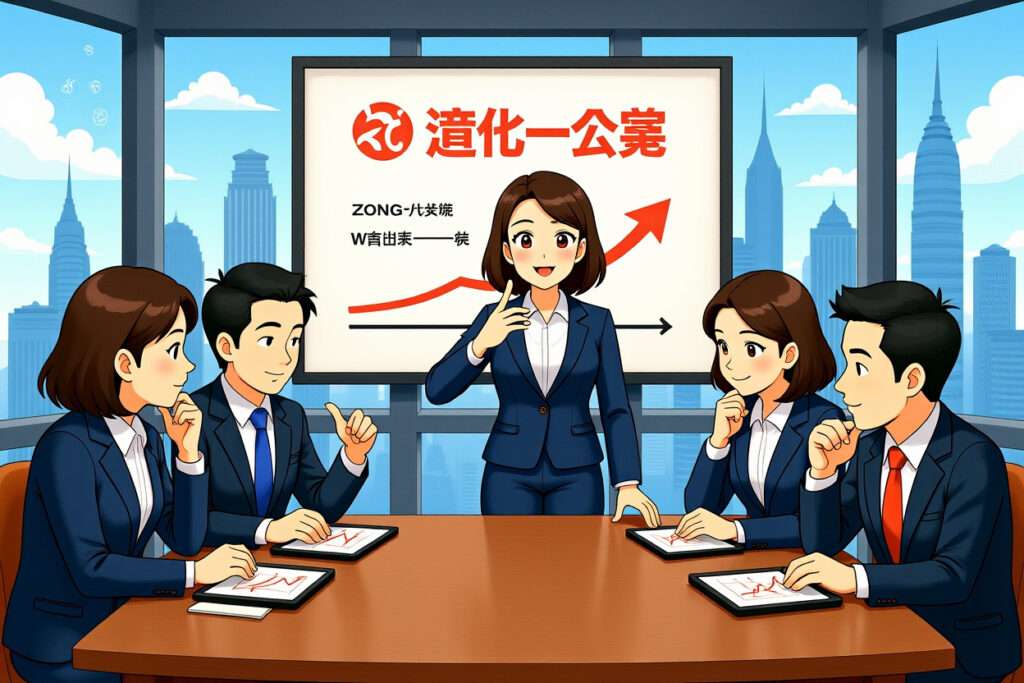Executive Summary
Focus Media’s complex relationship with Shuhe Technology reveals critical governance issues in China’s fintech sector.
- Focus Media holds 54.97% of Shuhe Technology but cannot exercise control due to corporate governance structure
- Shuhe’s Huanbei platform generated 9.42 billion RMB net profit in 2024 amid 28,000+ consumer complaints
- The lending platform contributes approximately 12% of Focus Media’s current profits through equity accounting
- Regulatory risks mount as China tightens oversight on consumer lending practices and collection methods
- International investors face governance transparency concerns in Chinese financial technology investments
The Ownership Without Control Paradox
Focus Media’s investment in Shuhe Technology represents a classic case of ownership without control in China’s rapidly evolving fintech landscape. The advertising giant acquired 70% of Shuhe Technology in March 2016 for 100 million RMB, just as it was completing its backdoor listing through Seven Star Holdings. This investment has since evolved into a complex governance puzzle that challenges conventional corporate control assumptions.
Corporate Structure Complications
Despite currently holding 54.97% of Shuhe Technology, Focus Media explicitly states in its 2025 interim report that it cannot exercise control over the company. The ownership without control situation stems from Shuhe’s corporate charter requiring supermajority approval for key decisions and board composition that limits Focus Media’s influence. The company maintains only 4 of 9 board seats despite its majority stake, creating a governance gap that has significant financial and reputational implications.
Historical Ownership Evolution
The path to this ownership without control situation began with gradual dilution through employee stock programs and new investor participation. Focus Media’s subsidiary Shanghai Shizhong Information Technology saw its stake diluted to 35.88% before other shareholders’ capital reductions pushed it back to 54.97% in 2024. This peculiar ownership trajectory demonstrates how Chinese tech investments can develop complex governance structures that challenge traditional control paradigms.
Financial Performance and Dependencies
Shuhe Technology’s remarkable financial performance has become increasingly important to Focus Media’s bottom line, creating a profitable yet problematic dependency. The lending platform’s revenue growth from 8 million RMB in 2016 to 9.68 billion RMB in 2024 illustrates the explosive growth of China’s consumer credit market during this period.
Profit Contribution Analysis
Focus Media recognized approximately 346 million RMB in investment income from Shuhe Technology in the first half of 2025 alone, representing about 12% of the company’s net profit attributable to shareholders. This contribution has grown steadily from 99.38% of Focus Media’s income from equity investments in 2024 to nearly 100% in 2025, highlighting the concentration risk in this single investment. The ownership without control arrangement has proven financially beneficial despite its governance challenges.
Asset Growth and Credit Expansion
Shuhe Technology’s assets grew from under 900 million RMB to over 13 billion RMB between 2016 and 2024, with current assets increasing by 3.3 billion RMB in just the first half of 2025. This rapid expansion reflects intensified credit issuance through the Huanbei platform, which has served 27 million users with personal consumption loans and small business financing since its 2016 launch. The ownership without control structure has allowed Focus Media to benefit from this growth while maintaining distance from operational decisions.
Consumer Complaints and Regulatory Challenges
The Huanbei platform has accumulated over 28,000 consumer complaints on China’s Black Cat complaint platform, raising serious questions about lending practices and consumer protection. These complaints primarily focus on aggressive collection tactics, high effective interest rates, and questionable guarantee fees that many borrowers claim push loans into usurious territory.
Interest Rate Controversies
Multiple complaints reference annualized rates approaching 36%, with additional guarantee fees creating even higher effective borrowing costs. One August 2025 complaint detailed a 4,000 RMB loan from October 2024 carrying a 35.99% annual rate with additional monthly guarantee fees of 23.59 RMB. While Shuhe Technology maintains that all rates remain within regulatory limits, the concentration of complaints suggests either consumer misunderstanding or potentially problematic pricing strategies that thrive under the ownership without control arrangement.
Collection Practice Concerns
Complaints frequently describe aggressive collection tactics that allegedly violate China’s Internet Financial Loan Collection Business Guidelines issued in April 2024. Consumers report repeated contacts after requesting cessation and threatening communications from collection agencies. The ownership without control situation appears to limit Focus Media’s ability to influence collection standards despite its majority financial stake.
Governance Implications for International Investors
Focus Media’s experience with Shuhe Technology offers important lessons for international investors considering Chinese fintech investments. The ownership without control model creates both opportunities and risks that require careful evaluation.
Board Representation Limitations
The fact that Focus Media holds only 4 of 9 board seats despite its 55% ownership illustrates how corporate governance structures can deliberately limit influence. This arrangement intentionally separates financial investment from operational control, creating potential misalignments between economic interest and management oversight. For international investors, understanding these structures is crucial when evaluating Chinese investment opportunities.
Regulatory Compliance Challenges
As China continues tightening regulations around consumer lending (PBOC guidelines), the ownership without control model creates compliance monitoring challenges. Majority owners may bear regulatory responsibility without possessing adequate governance tools to ensure compliance, particularly when invested companies operate in rapidly evolving regulatory environments like consumer finance.
Strategic Considerations and Future Outlook
Focus Media faces complex strategic decisions regarding its relationship with Shuhe Technology as regulatory scrutiny intensifies and consumer complaints accumulate. The ownership without control arrangement that initially seemed financially advantageous now presents growing reputational and regulatory risks.
Balancing Profit and Responsibility
The company must weigh continued financial benefits against potential reputational damage from consumer lending practices. With Shuhe Technology contributing increasingly significant portions of Focus Media’s profits, disentangling from this ownership without control situation becomes more challenging financially while maintaining the status quo grows more risky reputationally.
Industry-Wide Implications
This case reflects broader challenges in China’s fintech sector where traditional companies invest in digital finance platforms without fully understanding the regulatory and operational complexities. The ownership without control model may face increased scrutiny from regulators concerned about consumer protection and financial stability, potentially forcing restructuring of similar arrangements across the industry.
Investment and Governance Lessons
The Focus Media-Shuhe Technology relationship offers crucial insights for global investors evaluating Chinese financial technology opportunities. The ownership without control model presents unique characteristics that require specialized due diligence and ongoing monitoring approaches.
International investors should carefully examine corporate governance documents to understand actual control mechanisms rather than relying solely ownership percentages. Board composition, voting requirements, and special approval rights often matter more than equity stakes in determining actual influence. The ownership without control situation at Shuhe Technology demonstrates how these structures can create both financial benefits and governance challenges.
As China’s regulatory environment continues evolving, investors must monitor how ownership structures align with compliance responsibilities. Recent regulatory developments suggest increased attention to consumer protection in financial services, potentially affecting companies operating under ownership without control arrangements. Investors should assess whether their governance positions provide adequate oversight capabilities given expanding regulatory expectations.
Financial professionals should consider these governance complexities when analyzing Chinese fintech investments. The apparent disconnect between economic interest and operational control requires specialized valuation approaches that account for both financial returns and potential reputational or regulatory risks. This case illustrates why traditional valuation models may insufficiently capture the unique characteristics of ownership without control investments in regulated industries.




